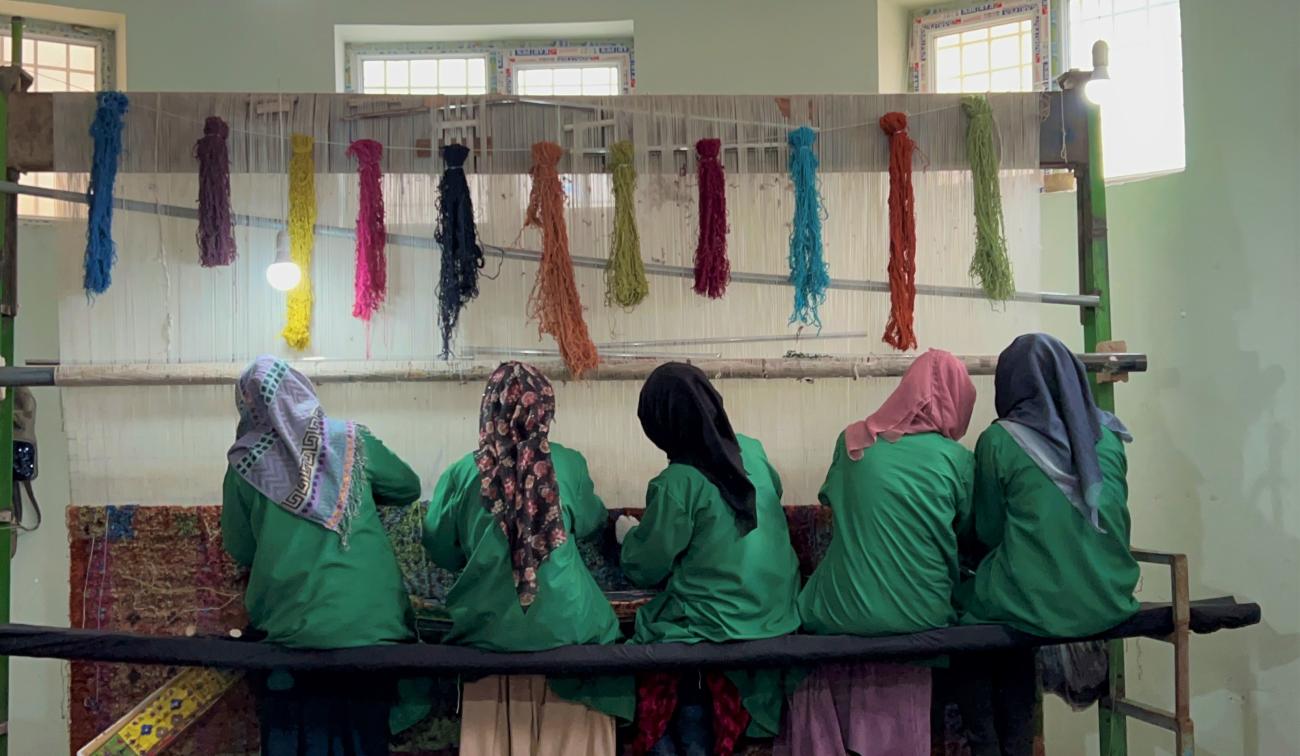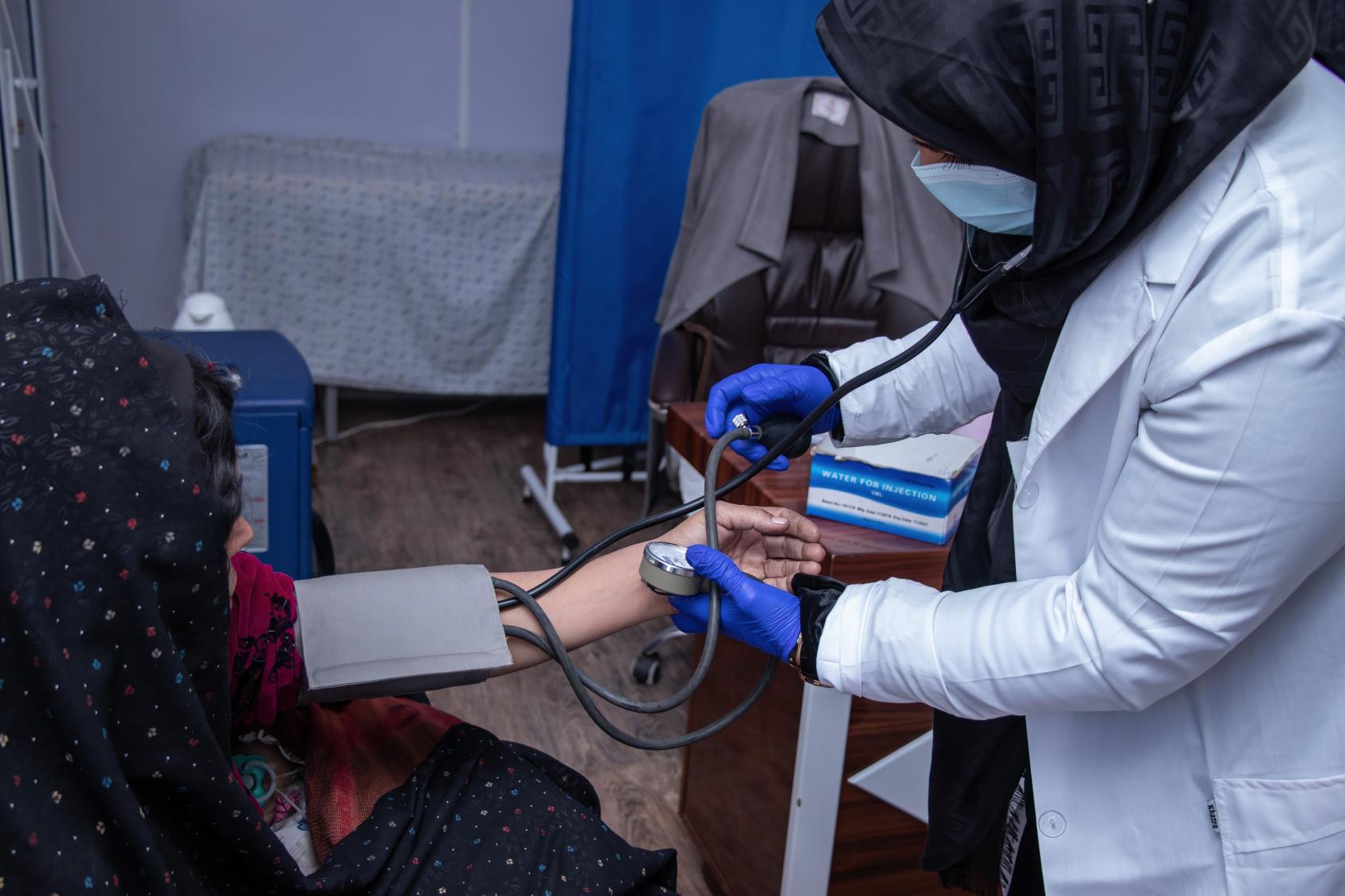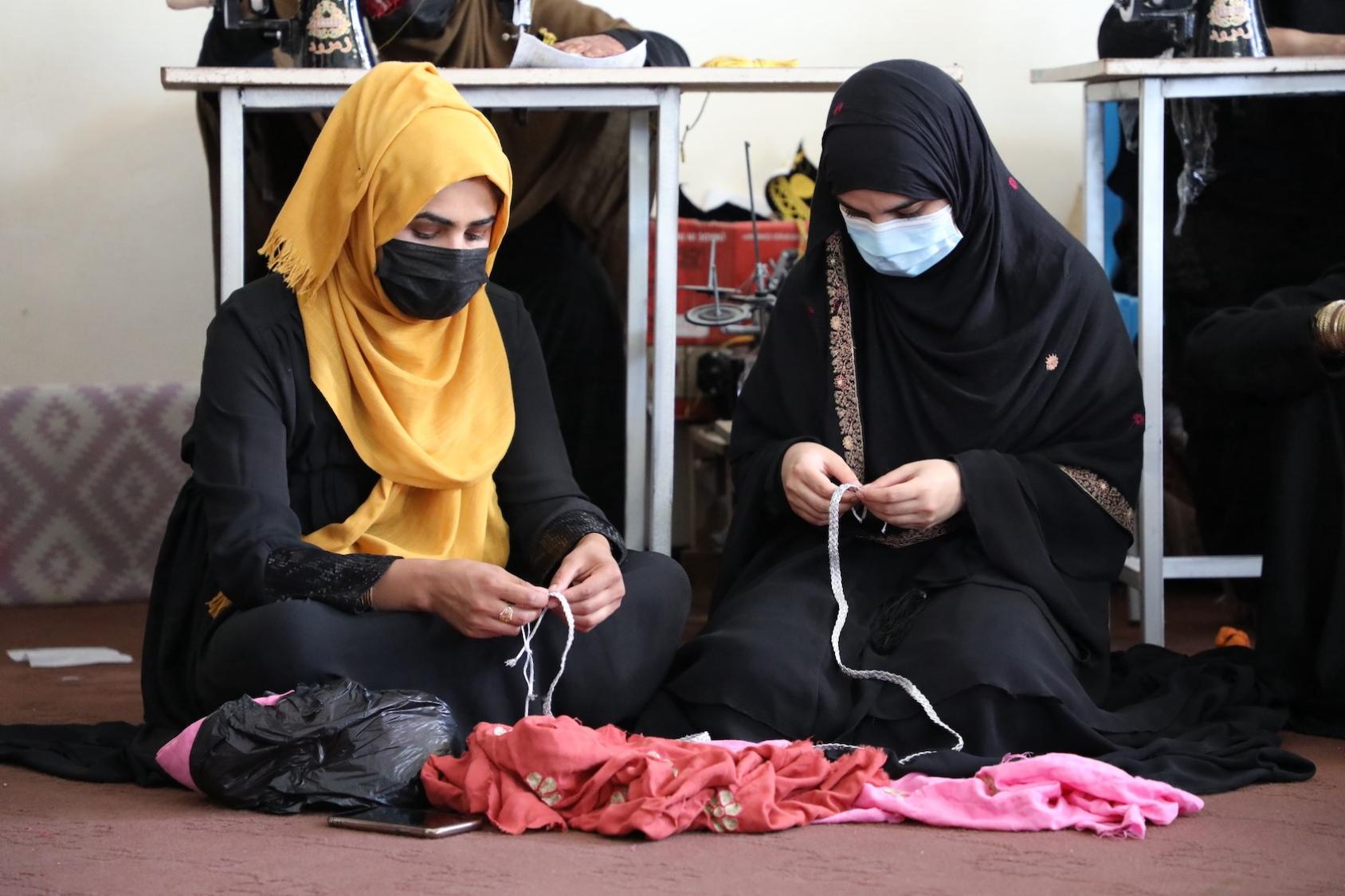Investing in Afghanistan's Women is more critical than ever

Afghanistan's people have faced extraordinary hardship in recent years. Decades of conflict compounded by natural disasters and the impacts of climate change have brought immense suffering – particularly for women, whose rights have eroded significantly. As UN Resident Coordinator and on behalf of the UN team on the ground, I reiterate our commitment to maintain our focus on strengthening investments for women in Afghanistan – support that is more critical than ever.
Delivering as One in Afghanistan: The Special Trust Fund
In October 2021, the UN established the Special Trust Fund for Afghanistan (STFA). Under the leadership of the Resident Coordinator, this fund aims to meet urgent human needs across the country while complementing ongoing humanitarian efforts. By pooling resources, it directly supports the most vulnerable Afghans and actively champions women's rights.
Since its creation, the Fund has been a powerful tool for joined up, cross-agency action. It brings together the diverse strengths of 17 UN agencies, funds, and programmes, allowing us to work collaboratively. The Fund promotes comprehensive local solutions that span from essential services to livelihoods and risk management. It supports programmes aligned with the United Nations Strategic Framework for Afghanistan 2023-2025, aiming to make a real difference in people's lives.
As Resident Coordinator, my office and I play a crucial role in driving this unified effort, drawing on the shared plan outlined in the Strategic Framework. In my role as Humanitarian Coordinator alongside the Afghanistan Humanitarian Fund, we combine our resources to deliver the support Afghans desperately need, avoiding unnecessary duplication and maximizing our impact. Our approach is designed to be flexible and adaptable to the ever-changing situation in Afghanistan.
Focus on women and girls
The UN team in Afghanistan uses the Fund to tackle complex issues with an approach that empowers women as agents of positive change, precisely to tackle the dire constraints for women and girls in the countries. Gender equality is central to our work. With the unprecedented challenges Afghan women and girls face, we follow a “by women, for women” approach – prioritizing women-led initiatives and giving them the tools to succeed. Since 2021, the Fund has supported over 1.67 million women across Afghanistan.
For example, the Fund has enabled the creation of more than 90 ‘Family Health Houses’ – community clinics staffed by local midwives who offer essential reproductive, maternal, and child health care. Access to these services gives women greater control over their health, their lives, and their futures.

Beyond health, the Fund supports education. Afghanistan’s female literacy rate sits at a worrying 23 per cent – even lower in rural areas. To combat this, the Fund enables local programmes that teach literacy, numeracy, and various income-generating skills. These initiatives create opportunities, improve health, and help manage risks in the community.
Since economic independence is crucial for women, the Fund targets micro, small and medium-sized enterprises (MSMEs) owned by women. With access to capital, skills, and markets, women entrepreneurs can thrive. Even as employment opportunities are restricted, women-led businesses help meet families’ needs and strengthen the overall economy. Remarkably, over 70 per cent of MSMEs supported by the Fund are women-owned, a testament to the impact of direct investment. This represents over 3,200 enterprises able to sustain or grow operations and employ more people, including women, in their communities.
As with the rest of the world, natural disasters weigh heavily on Afghanistan, disproportionately affecting women. The Fund promotes climate-resilient infrastructure, like water systems, clinics, and shelters, with women at the forefront of decision-making to ensure their needs are prioritized.
Opening doors, overcoming challenges
The UN’s work in Afghanistan is fraught with challenges, especially restrictions affecting women’s roles in local and international non-governmental organizations (NGOs). But we remain firm in our commitment. While we adapt our methods, we will not compromise our core principles of non-discrimination and women’s meaningful involvement in their country’s progress.
Women-led organizations such as NGOs, MSMEs and others are vital for women and girls’ participation, leadership, and essential services, especially in contexts like Afghanistan. Therefore, a core priority for the Fund in 2024-2025 is to further invest in women’s empowerment by supporting these organizations. Our focus includes long-term solutions for internally displaced persons and returnees and aid for post-earthquake recovery in western Afghanistan.

Our commitment to the Sustainable Development Goals (SDGs) remains unwavering, especially noting that investing in women and girls plays a catalytic role in boosting gains across all Goals. The Special Trust Fund illustrates how the Resident Coordinator's Office can bridge immediate and long-term needs while supporting peacebuilding efforts. It offers both immediate relief and long-term solutions driven by the communities themselves. Though progress has been made, we must scale up investments in women, as donor support, unfortunately, shows a declining trend.
I am inspired daily by the courage of the Afghan people, especially the women who tirelessly fight for a better future. The UN remains steadfast in its pledge to ensure that Afghan women and girls can fully reclaim their rights. The world must stand with them.
This blog was written by the UN Deputy Special Representative, Resident Coordinator and Humanitarian Coordinator in Afghanistan Indrika Ratwatte. For more information about the UN's work in Afghanistan, visit afghanistan.un.org.













